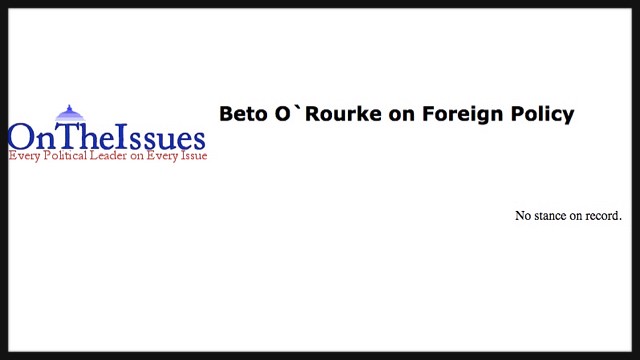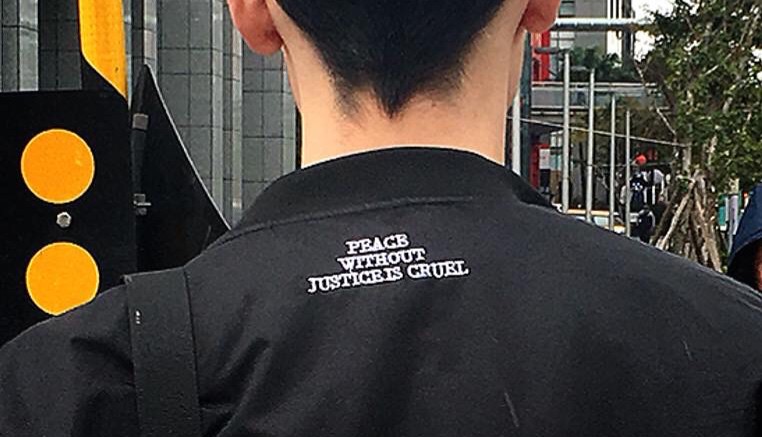
Like any good Snowflake SJW Avocado Toast Millenial*, I'm excited that Beto O'Rourke - a liberal described as "the next Obama" - is actually a realistic challenger to Ted Cruz in Texas. Texas! Where "no democrat has held state-wide office since 1994"! In a midterm election year that is not only seen as a referendum on Trump's two years of terrorizing from his perch in the White House, but also the only realistic chance we as a nation have of curbing him, to see this kind of progressive stand a chance in Texas of all places is huge.
This is especially exciting as he stands to unseat Ted Cruz, who ran for Human President in 2016 and who hates women and the LGBT community which is odd as I'm not sure his species has 'genders' or 'biological sex' in the way we understand them. In any case, pretty much nobody likes him.
So he could be gone! Yay!
...right?
Oh, wait, you support Taiwan and want to vote for representatives in the US government who are friends of Taiwan.
Then, not yay.
I have no idea what Beto O'Rourke thinks about Taiwan, or about foreign policy in general, and it seems neither does anyone else. His own website has no guidance whatsoever as to what, as a senator, his foreign policy would be.
But, as 'the next Obama' I can make some educated guesses. Obama was not a great friend to Taiwan. See here on arms sales (Taiwan advocates didn't seem terribly impressed and neither was I), "reducing tensions on both sides of the strait" (as though the source of the tensions weren't entirely one-sided), his advisors totally missing the point of Taiwan independence, ceding the high ground (and insistence on standing up for what's right) to McCain, and seeming to care more for Beijing's tender baby feelings than actually doing the right thing. Then there's support for the milquetoast, only-because-of-politics status quo ("a high degree of self-determination?" Screw you, buddy. Total self-determination like any other democratic nation or GTFO). Perhaps necessary, but harmful to Taiwan.
Long and short of it? Lots of talk about doing what's right on the American left, but then they turn around and play politics just like everyone else. I don't imagine an Obama-style liberal like O'Rourke will be a great ally of Taiwan.
Who knows? He might surprise me. But I doubt it.
Ted Cruz? He met with Tsai Ing-wen. Ted Cruz (Ted Cruz!) said this:
Another champion of Taiwan and supporter of the travel bill, is Sen. Ted Cruz (R-Tex.), who met with Tsai in Houston on Jan. 8, 2017 despite Beijing’s strong objections.
In an interview, Cruz slammed as “absurd” a December threat by Chinese diplomat Li Kexin during an event at Beijing’s embassy in Washington. Li told colleagues that he had warned U.S. officials against docking American warships in Taiwan.
“The day that a U.S. Navy vessel arrives in Kaohsiung is the day that our People’s Liberation Army unifies Taiwan with military force,” Li said, according to Chinese media reports cited by Reuters.
“The threat from a low-level Chinese diplomat of a military invasion of Taiwan was absurd, unduly provocative and should be met with laughter and derision,” Cruz said.
Cruz also denounced China for “vigorously” lobbying to kill strong ports-of-call language for Taiwan that he wanted included in the 2018 defense authorization bill, Cruz said.
I'd cream my damn pants if Obama said something like that.
I know, I know, a senator can say things a president can't, but remember, Cruz wanted to be
president.
But wait, there's more!
"Texas stands with Taiwan," Ted Cruz also said.
While I'm not sure why Cruz is such a strong Taiwan supporter - general wisdom has it that most pro-Taiwan Republicans support this country because they oppose "Communist China", that is, they're still stuck in Cold War thinking - I'm definitely of the school of Taiwan advocate that feels Taiwan should take the help it can get. I'm not inclined to say we don't want his support because he's awful in just about every other respect.
But, as a liberal pro-Taiwan voter, I'm damn glad I'm not a Texan.
Sure, we have bipartisan support and I am glad of that. I won't pretend this is a war of Dems against Reps for the future of Taiwan or anything like that.
But, what's a girl who supports Taiwan, enjoys bodily autonomy and wants her gay friends to have equal rights to do, when the guy she would vote for is very likely not going to be the Taiwan ally she wants to see in office, and the champion of Taiwan he stands to defeat pretty much hates her on account of her having a vagina?
If the only issue she cared about were Taiwan, the choice would be obvious (and very self-harming, if not masochistic.) But when every other platform of the friend of Taiwan she wants to see in office is so odious that she feels she must vote against him, only to worry that that strong bipartisan support for Taiwan in congress might well waver - maybe just a ripple - by voting out a Taiwan ally and voting in someone who doesn't appear to have a foreign policy at all, let alone any sense of the importance of Taiwan.
All I can say is, if this issue were to ever face me as a voter in the northeast, I would honestly spin myself in circles with anxiety. It quite literally feels like it comes down to "Taiwan, which is what is right", and "everything else that's right".
I want a tried-and-true friend of Taiwan in office, but I also want O'Rourke to win for literally every other reason.
So yeah, bipartisan support or not, it's really difficult to use our votes as Americans to support Taiwan.
*not really a Millenial but let's pretend






